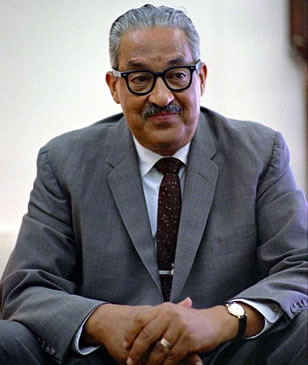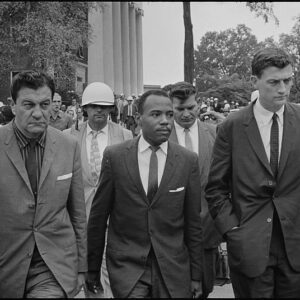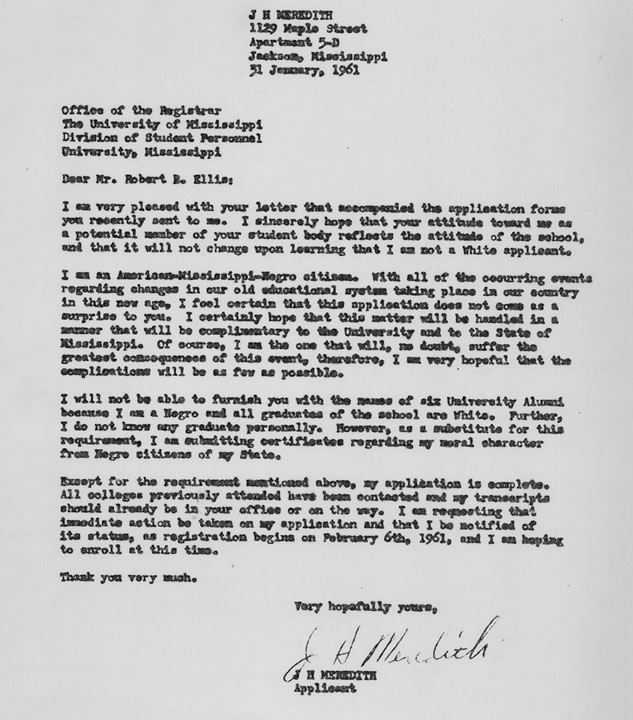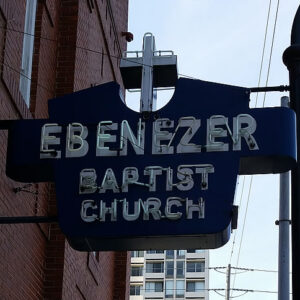 Ebenezer Baptist Church – What’s in a name? The word Ebenezer is from the Hebrew word – ebhen hā-ʽezer which means “Stone of Help”.
Ebenezer Baptist Church – What’s in a name? The word Ebenezer is from the Hebrew word – ebhen hā-ʽezer which means “Stone of Help”.
The Ebenezer Baptist Church in Atlanta was founded in 1886 by its first minister, John Andrew Parker. 8 years later Martin Luther King, Jr.’s maternal grandfather, Alfred Daniel Williams, became its second pastor. To understand the Rev. Williams’ ministry is to gain insight into the mind and heart of his grandson, the late Dr. Martin Luther King, Jr., and countless of Ebenezer’s members. Rev. Williams’ ministry may be viewed as the foundation on which the psyche of the congregation was formed vis-à-vis civil and human rights.
Williams was one of the pioneers of a distinctive African American version of the social gospel, endorsing a strategy that combined elements of Booker T. Washington’s emphasis on black business development and W. E. B. Du Bois’ call for civil rights activism. As pastor of Ebenezer Baptist Church for over 25 years, Williams infused his ministry with social activism by helping found the Atlanta chapter of the National Association for the Advancement of Colored People (NAACP).” Source
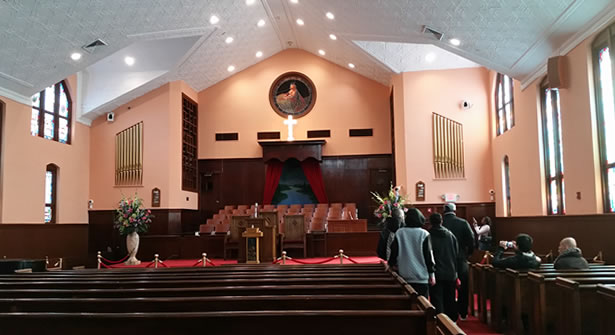
By 1913, under Rev. Williams, membership in the church had grown from 13 to 750. During the time, Rev. Williams was Ebenezer’s pastor, he moved the church twice. The third time, was to a new church on a lot they purchased at the corner of Auburn Avenue and Jackson Street. Groundbreaking for the new church was in March, 1914.
In 1926, Rev. Michael King married Rev. Williams’ daughter Alberta. Rev. Williams passed on in 1931, and his son-in-law, Michael King, became Ebenezer’s pastor. At that time, Rev. King began using the name Martin Luther King. Rev. King, Sr. was the Senior Pastor at Ebenezer Baptist Church for 44 years (1931 – 1975). During that time, his wife, Alberta King was “a powerful presence in Ebenezer’s affairs. She founded the Ebenezer choir and was an organist there from 1932 to 1972.” She had other interests outside of the church that included involvement in the Women’s Auxiliary of the National Baptist Convention, the YWCA, the NAACP, and the Women’s International League for Peace and Freedom. Rev. and Mrs. King, and their children – daughter Willie Christine and two sons, Martin Luther and Alfred Daniel – spent much of their time at Ebenezer. The time Martin Luther King, Jr. spent at Ebenezer shape his life for what was to come.
Martin Luther King, Jr. attended Morehouse College. In the Fall of 1947, before graduating from Morehouse, the young King delivered his first sermon at the pulpit of Ebenezer Baptist Church. Soon afterward, Ebenezer’s congregation voted to license him as a minister. He was ordained in February, 1948 and graduated from Morehouse in May 1948.
After Morehouse, Martin Luther King, Jr. went on to study at Crozer Theological Seminary and Boston University where he received his PhD in systematic theology in 1955. “While in seminary, King often went home to preach at Ebenezer. He delivered some of his most enduring sermons for the first time at Ebenezer, including ‘The Dimensions of a Complete Life,’ ‘What Is Man?’ and ‘Loving Your Enemies.’”
Dr. King, Jr. became the senior pastor at Dexter Avenue Baptist Church in Montgomery, Alabama in 1954. In November, 1959, he joined his father as co-pastor at Ebenezer – “a move that brought him closer to the headquarters of the Southern Christian Leadership Conference.” Dr. King, Jr’s brother, A.D. Williams King, was installed as Ebenezer’s co-pastor after his brother was assassinated in 1968. Their father, Rev. King, Sr. continued as pastor until 1975, and Coretta Scott King continued to attend services at Ebenezer until her death in 2006.
Rev. A.D. Williams King passed away in 1969 from drowning. His mother and Rev. King Sr.’s wife, Mrs. Alberta Williams King died in 1974. She was shot and killed as she played the organ during Sunday services at Ebenezer by Marcus Chenault, a 21-year-old man from Ohio who claimed, ‘‘all Christians are my enemies’’ Mrs. King was 70 years old. Ebenezer Deacon Edward Boykin was also shot and killed by Chenault that tragic day.
Joseph L. Roberts Jr., became the church’s pastor, after Dr. King, Sr. retired in 1975. To accommodate its growing congregation, Ebenezer built its new 2,000-seat Horizon Sanctuary across the street from the old sanctuary. The original Ebenezer building, is now known as the Heritage Sanctuary. Roberts retired in 2004, and Raphael Gamaliel Warnock gave his first sermon as senior pastor in October 2005.
Resource: Martin Luther King, Jr. and the Global Freedom Struggle
